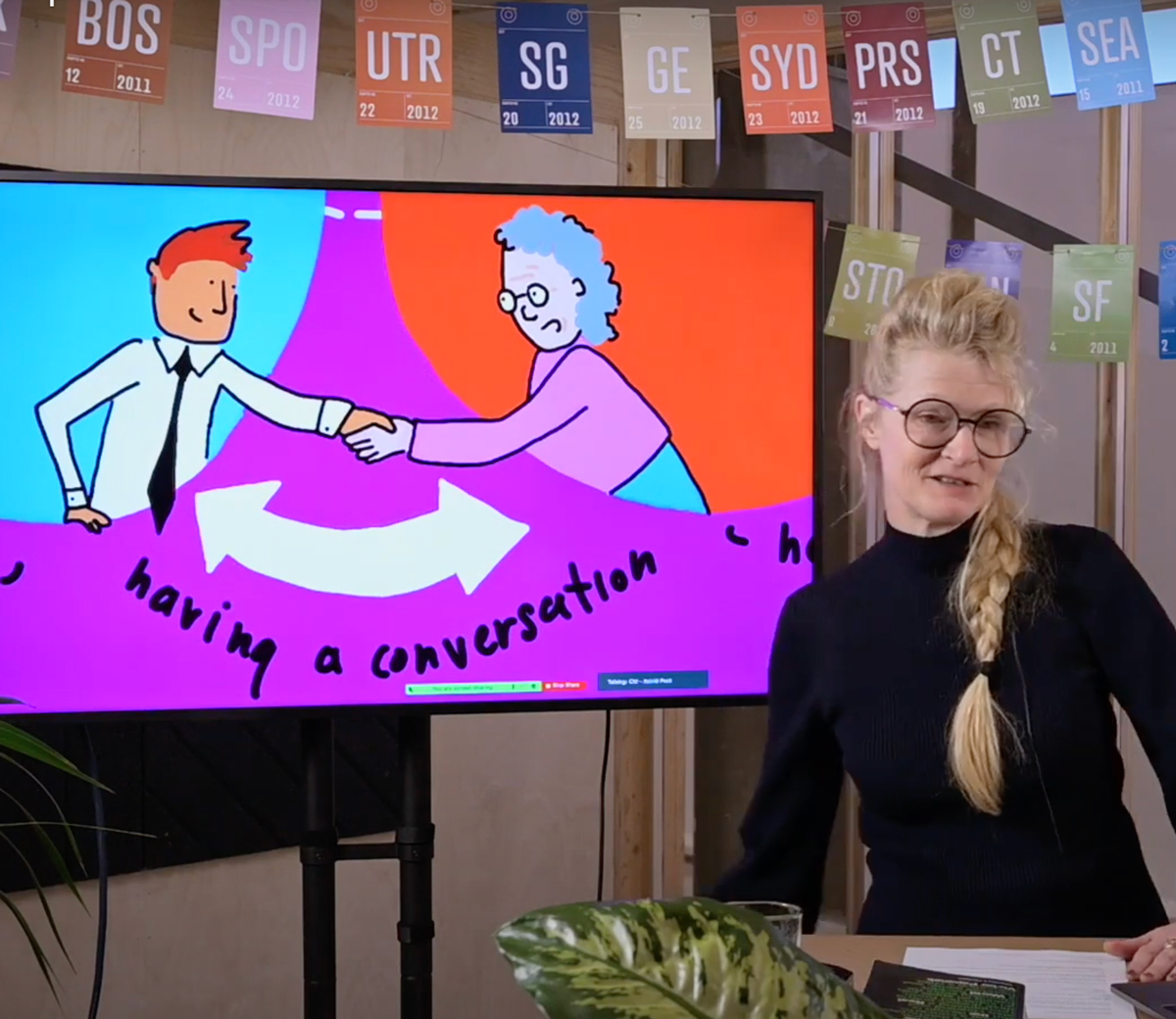Creative Mornings Utrecht are nice group of people. Curious designers, keen to share en to allow others to share too. So, when I was invited to do a talk on the theme Promise, I was very happy. The opportunity to sharpen my thoughts into a lecture lifted my spirits.
My talk was recorded and is available on YouTube. It will take 19 minutes and 19 seconds of your time to watch. For the readers I made a little summary that will take about 5 minutes of your time.
(I was focusing on our Zoom guests during the recording, please don’t feel overlooked…)
I promise …
As designers we shape the world, we organise the behaviour of other people. Therefore we are doing ethics for others and that is a huge responsibility.So some time ago I decided to study ethics in design some more, to better understand my own position and to become a better lecturer for the design students I sometimes teach.
I talked to many people, I wrote a lot -most important: My big plan (Dutch) and Learnings so far (Dutch)- and started a podcast.
Two clear patterns showed themselves:
- First: all designers I talked to get into an acute attack of imposter syndrome when asked about ethics. One of our podcast guest put it nicely: designers feel they need to study Kant for 20 years before being allowed to think and talk about ethics. (And feel unworthy because of that.)
- Second: ethics is about being good. And being good means making sacrifices. No glamorous assignments, no fun parties in Cannes and no money.
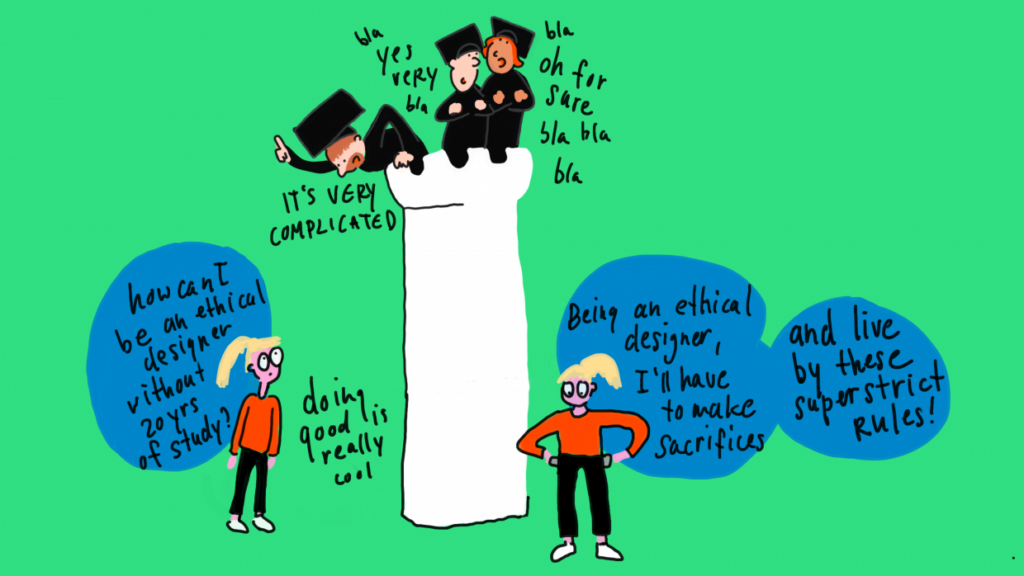
Victor Papanek (Design for the real world) calls these excuses.* Signs of weakness. And at first I agreed. So I started out with my ethics research by writing an awful list of restrictions and rules and force these upon you.
But now I am not so sure anymore that’s the right approach.
I strongly believe as designers we need to make progress, we have to be bolder than we are now. But we don’t have to change everything. We can be kind to ourselves. I think we can be a little pragmatic.
*) By the way: I love the book, Papanek shares many great ideas. All designers should definitely read it.
5 promises

1. Don’t be weak, be kind.
Weak designers uphold the system. The system that is often driven by money and competition. So strong would make a nice opposite. But I believe kind is a better one. That doesn’t mean you don’t have to be strong: when clients and colleagues treat you like a printer you should resist, if only because you are a skilled person and not a stupid machine.

Being strong shows self-love.
And kindly review the situation. Because Mr. Client en Carol Colleague have good reasons to ask what they ask. From their perspective, that is. You can offer the other perspective. You can redesign the situation. Isn’t it much better to strive for well being instead of profit? Isn’t is much better to cooperate and not compete?
Starting a dialogue and not a war, makes you a kind designer.
2. Don’t be an expert, be human
But be careful not to become too expert-ish. Some experts remove themselves from the conversation: they no longer treat others as equals. That kills any dialogue. Especially because in design your audience are all experts too! Experts of their now life. Bring your expertise, but make sure you keep an open attitude.
Don’t dehumanise people by calling them a target. Loose the company-behaviour. Don’t use stupid words and never believe using post-its equals a creative process. Yes, post-its can support a creative process, but they can never be at the heart of one.
Just connect to the people you are designing for. Have a conversation. Be curious and share your thoughts. That should always be the heart.
And be open towards your own idea. Don’t play an expert checking with the briefing and persona’s that you got. But be a human and ask two simple questions:
- Does your idea help you audience? The answer should be yes.
- Does your idea cause any unacceptable damage? The answer should be no.

3. Don’t be frustrated, but do nourish your anger
Most of the work I do is driven by anger. I love anger: to me it is a powerful force. And it doesn’t make my work angry: most of it is optimistic and happy. Key is to move from frustration towards power. To redesign your rage into a force for good. (More on anger (Dutch))
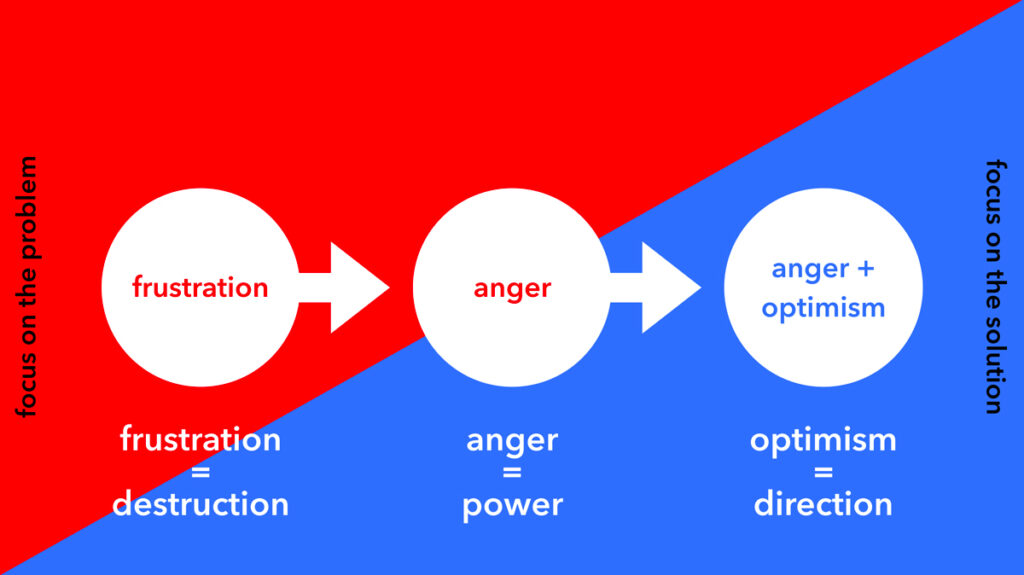
Understand your power
As the great Brittany Packnett Cunningham once put it:
- WHAT are you angry about?
- HOW do you want it to change?
- WHO are you, uniquely, to do something about it?
- WHAT will be different because YOU took action?
4. Don’t be cynical, be naive
It’s easy to dismiss al this as stupid and unrealistic. To be cynical about possible change. But then I will call you lazy.
Nourish your beginners mind: the capability to look at a situation with new eyes. Be naive, because that will protect you from dismissing vulnerable new plans by talking expert. It takes courage to be a bold optimist. It takes courage to believe things can really change. It takes courage to be naive and open.
5. Don’t feel you have to change it all, do your bit.
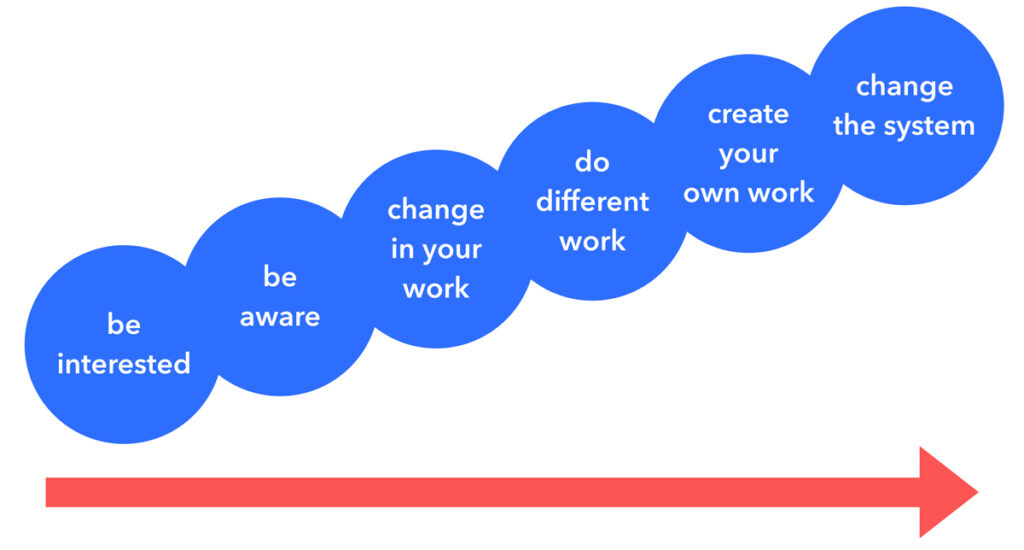
Design yourself: to be interested in change is the first step, to be aware and make small changes in your work follow. Do your bit, find our what is within your reach. You don’t have to change it all, but you can always do something.
Trying makes you worthy.
As designers we are doing ethics for others.
And that’s a big deal, because as designers we have special powers:
- As designers we see what’s happening in the world around us.
- We can understand what is means, we know what’s the system behind the madness.
- And we can make change by designing it.
Use these powers well.
I promise to heal the world.
I believe you cannot really win with threats and blaming people for what is wrong. (As some people do in the ethics-design discussion). That only causes rejection and indifference. I believe firm kindness is the only way.
Please look over the promises I made. And let me know if they work for you too. I will love you for trying. Promise.
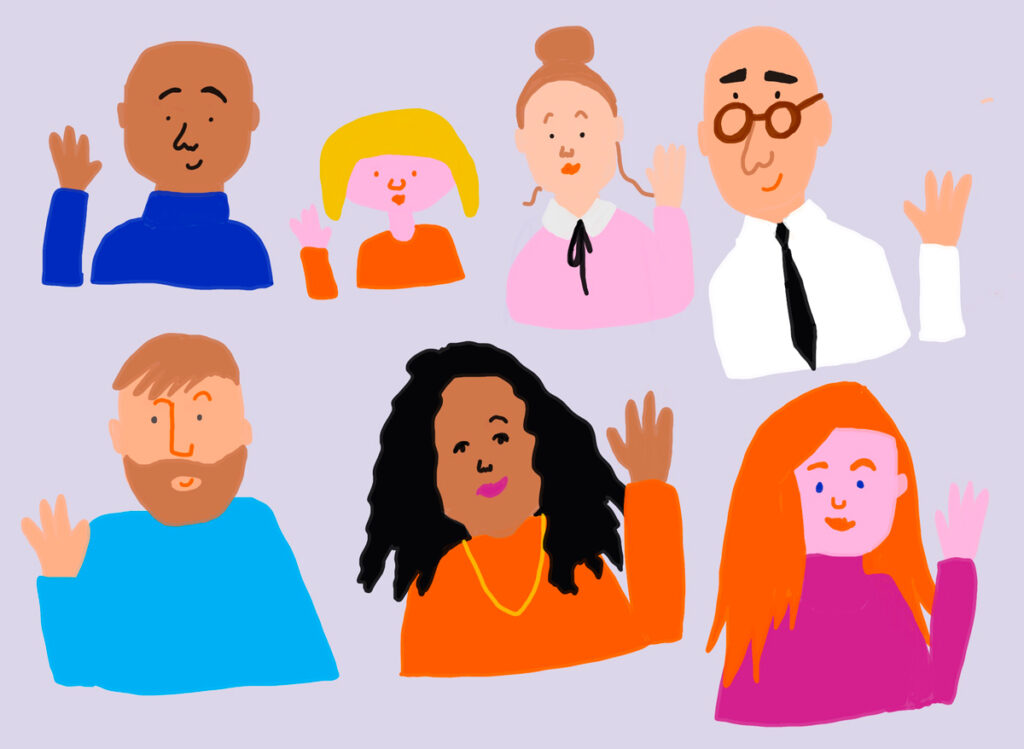
Design yourself!
Further reading
The things I write about my research on ethics and/in design are mainly in Dutch (my apologies to the internationals). The best pieces are these:
- Ontwerper: wees geen printer, wees een veranderaar; de tussenstand na een half jaar.
- Podcast: Astrid en Vasilis praten makkelijk.
